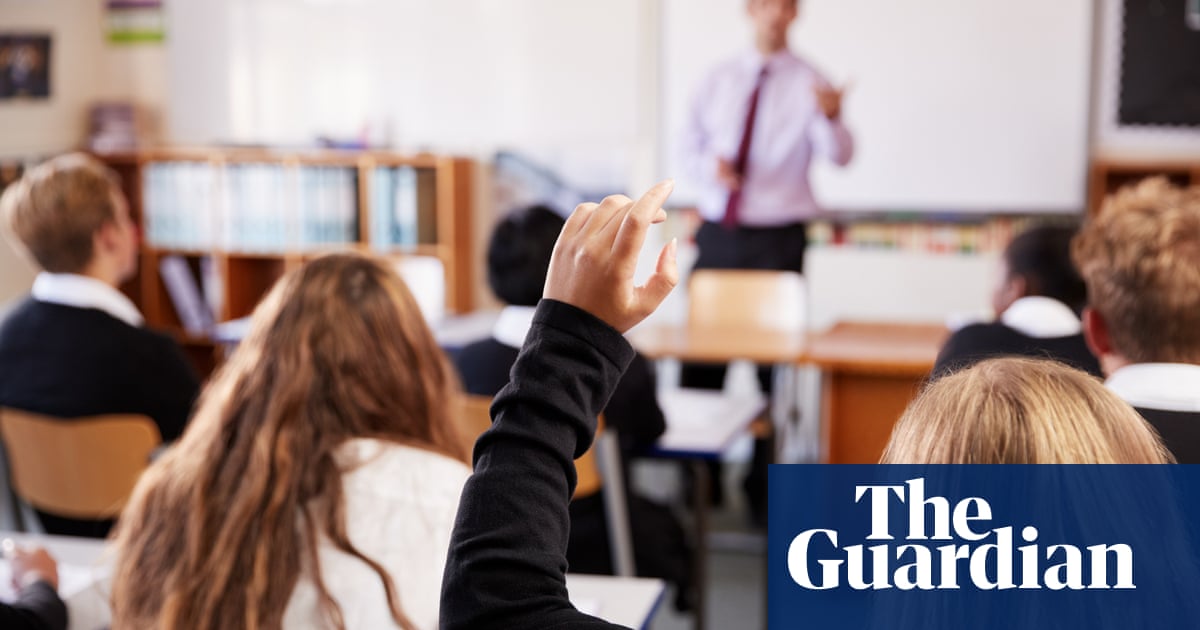A thinktank is calling for every secondary school in England and Wales to appoint a relationship violence prevention lead. Photograph: Monkey Business Images/ShutterstockView image in fullscreenA thinktank is calling for every secondary school in England and Wales to appoint a relationship violence prevention lead. Photograph: Monkey Business Images/ShutterstockRelationships and sex educationSchools in England and Wales urged to teach relationship violence preventionYouth Endowment Fund says specialised lessons needed to tackle issues such as abuse, consent and coercionRichard Adams Education editorThu 1 May 2025 00.05 BSTLast modified on Thu 1 May 2025 00.06 BSTShareA thinktank is calling for schools to appoint relationship violence prevention leaders, modelled on the success of mental health coordinators, as teachers say they are ill-equipped to advise on the complex issues involved.A study by the Youth Endowment Fund (YEF), supported by the Home Office, wants young teenagers in England and Wales to be taught “relationship violence prevention lessons”, aimed at tackling emotional, physical and sexual violence, psychological abuse, stalking and harassment.While schools in England have had statutory guidance on teaching relationships, sex and health education since 2020, Jon Yates, YEF’s chief executive, said too many pupils were still not receiving teaching on how to recognise healthy and unhealthy relationships or how to get out of damaging relationships.Girls in England feel less safe at school than they did pre-Covid, survey findsRead moreAs a first step, the YEF is recommending a pilot scheme to give secondary schools £8,000 for a “violence against women and girls lead”, for training or external support, and to ensure that relationship lessons are upgraded.“One of the big challenges around implementation, in delivering these lessons across schools, is convincing teachers that they’re needed, that this happens to children, and we need to focus on it,” Yates said.“But schools can often be a bit nervous about advertising that they’re doing these sessions. They don’t want to advertise to prospective parents that they might have a problem with relationship violence. But the point is, this is everywhere.”Research by the YEF found nearly a third of teachers taking RSHE classes said they had never received any training, while more than a quarter said they were not confident teaching children how to leave an unhealthy relationship. Almost half said they struggled to explain how to intervene if children witness a sexual assault.Lucy Emmerson, the chief executive of the Sex Education Forum, said its research found that only 50% of young people said their RSHE lessons were good or very good, despite recent improvements in the curriculum.“We’re finding that some topics like puberty are covered really well, young people say it’s done really well, and to some extent topics like consent. But topics like pornography and power imbalances in relationships, these are the kind of topics that young people very often say are inadequately covered or not covered at all,” Emmerson said.“That’s often where parents say it’s different from what they encountered as a child – they might remember their sex education being quite technical, quite focused on puberty and biology and not so much on ‘what does it feel like?’ ‘How do I manage my feelings?’ ‘How do I deal with rejection? ‘How can I understand what’s going on here?’”skip past newsletter promotionSign up to First EditionFree daily newsletterOur morning email breaks down the key stories of the day, telling you what’s happening and why it mattersEnter your email address Sign upPrivacy Notice: Newsletters may contain info about charities, online ads, and content funded by outside parties. For more information see our Privacy Policy. We use Google reCaptcha to protect our website and the Google Privacy Policy and Terms of Service apply.after newsletter promotionThe topics include how to recognise the signs of healthy and unhealthy relationships, and how to get help if needed, which Emmerson said were vital building skills for friendships as well as personal or sexual relationships. But the difficulty remained in getting the training and investment needed for teachers.“To do those so-called trickier topics really well, teachers need to be confident in this subject area, they need to be able to hold high-quality and open discussions with pupils and not just fact-based teaching around it,” Emmerson said.“Children and young people benefit hugely from the skills of listening to each other, to empathise, to respect each other and to negotiate and understand their emotions and express them. It’s not just learning some facts, it’s learning how to behave and respond.”Explore more on these topicsRelationships and sex educationSchoolsTeachingSecondary schoolsnewsShareReuse this content

